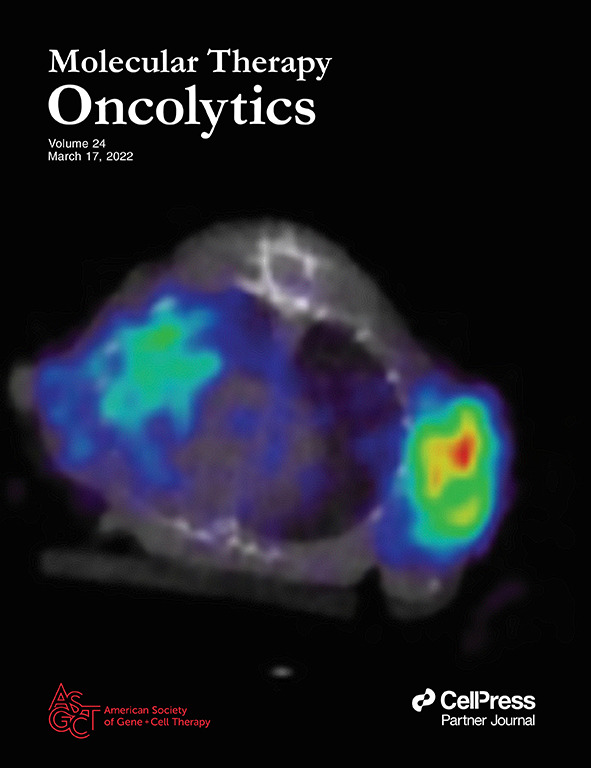The Vector
Volume 11, Issue 5: May 2022
Editorial Team
Edith Pfister, PhD – Editor, The Vector
Karen Bulaklak, PhD – Associate Editor, The Vector
Jon Brudvig, PhD – Junior Editor, The Vector
Inside This Issue
Leadership Message
Breaking Through
From Molecular Therapy
Society News
Career Center
Public Policy
Industry News
Leadership Message
Today is the Last Day to Verify Your Vaccination if You're Attending #ASGCT22 In Person
.aspx?width=125&height=125)
Hello ASGCT Members,
It’s hard to believe that in just a few days, we’ll be back in person again at the ASGCT 25th Annual Meeting! After two years of “seeing” you virtually, I’m looking forward to being face to face again next week in Washington, D.C. If you haven’t registered yet, you can do so here for the meeting and for one or more of our 13 Pre-meeting Workshops. Make sure you register by May 14 to receive the best rate.
If you’re already registered, start planning your week by looking through the full collection of abstracts on ASGCT’s website and in this Molecular Therapy PDF. You’ll also find daily schedules in the program guide. If you’re joining us in Washington, D.C., please make sure you verify your vaccination by 5 p.m. today. If you miss this deadline, you’ll have to do so on site where the lines will be longer. Finally, whether you’re attending in person or virtually, you’ll have access to the virtual platform throughout the meeting and for 30 days afterwards to watch sessions on demand.
As I look back on my year as ASGCT president, I feel extremely proud of all the hard work we’ve been able to accomplish together. We’ve added some excellent programming with ASGCT’s Insight Series, as well as additional Professional Development Cafés, Patient Education Lunch & Learns, and new global events. We hosted a successful hybrid Policy Summit as well as our first hybrid International Oncolytic Virus Conference (IOVC). We established the Founders Award recognizing a pioneering contributor to the field. I’m confident that our incoming team of board members will keep up the momentum! I truly look forward to the initiatives they will champion in the next year.
With that, I’m pleased to introduce our next ASGCT president, Hans-Peter Kiem, MD, PhD. Dr. Kiem is the director of the stem cell and gene therapy program in the clinical research division at Fred Hutchinson Cancer Research. His lab studies cell and gene therapy with a particular interest in the biology of blood and marrow stem cells and the development and use of novel gene therapy and genome editing technologies for ex vivo and in vivo applications. He’s been a member of ASGCT for more than 20 years. Having worked closely with Dr. Kiem and Dr. Chamberlain over the last year, as well as the other members of our executive team, I know you will be in great hands!
I’m so thankful to everyone who has worked so hard over these last months to make this meeting possible, including all of ASGCT’s volunteer committee members and staff. I can’t think of a better way to end my presidency than by celebrating the past 25 years of ASGCT and looking forward to the next 25 years and beyond.
Stay well, keep in touch, and I’ll see you next week.
With warm wishes,
Beverly L. Davidson, PhD
ASGCT President
Breaking Through
DdCBE mediates efficient and inheritable modifications in mouse mitochondrial genome
Guo J, Chen X, Liu Z, Sun H, Zhou Y, Dai Y, Ma Y, He L, Qian X, Wang J, Zhang J, Zhu Y, Zhang J, Shen B, and Zhou F
DOI: https://doi.org/10.1016/j.omtn.2021.11.016
Summary by Karen Bulaklak, PhD
Mitochondrial diseases are a group of rare genetic disorders that can present with symptoms such as poor growth, muscle weakness, and neurological impairment. These diseases can be caused by mutations in the mitochondrial DNA (mtDNA) that interfere with the mitochondria’s metabolic functions within the cell. To date, over 250 mtDNA mutations have been associated with human disease. Mouse models have been an invaluable tool to better understand mitochondrial disease pathways and create effective therapies. Still, our understanding of disease mechanisms remains limited and is further complicated by the heterogeneity of mtDNA within cells, as a certain number of copies must be affected to reach a phenotypic threshold. Thus, mouse models that harbor the appropriate mutation and can faithfully recapitulate disease symptoms are needed.
To meet this challenge, a group of researchers at Nanjing Medical University and Medical College of Soochow University developed a strategy to induce targeted mutations in mouse mtDNA using a cytidine deaminase from bacteria (DdCBE). To test the feasibility of their approach, they identified multiple loci in the mouse mtDNA that correspond to disease-associated G-to-A mutations. As proof-of-concept, they first examined the ability of DbCBE to convert G-to-A at these loci in vitro and confirmed successful base editing via deep sequencing. After identifying the best DdCBE pairs, the researchers took their approach in vivo and injected DdCBE mRNA into mouse embryos. As a result, ~30 to 40% of pups were successfully edited, with a range of conversion between ~2 to 29% among the different loci. Interestingly, when different tissues were examined in founder mice, there was a consistent rate of base editing throughout the body; however, germ cells' editing levels were variable. When female founder mice were crossed with male wildtype mice, the induced mutations were found and occurred at a higher rate in some offspring. Together, this demonstrated that the mutations were heritable and could increase in frequency in subsequent generations. The researchers also performed off-target analysis in these mice and found evidence of bystander effects within the spacer region, where unintended bases were converted (up to ~25%) depending on the sequence context. Low levels of off-target editing (<2%) were also observed throughout the mitochondrial genome. The group also examined the identical target region in nuclear DNA and did not detect any edits. Despite the observed editing of non-target bases within the spacer region, the authors concluded that this approach exhibited relatively high fidelity and limited off-target editing.
With the limited availability of mouse models for mitochondrial disease, the work by this group of researchers provides a path forward. While it remains to be seen whether these models can recapitulate the human disease course, these efforts provide much needed hope for creating effective therapies.
From Molecular Therapy
_1.aspx?width=125&height=162)
Now open: Search for Molecular Therapy—Oncolytics editor-in-chief: ASGCT has opened its search for the next editorial leader of MTO as the inaugural editor-in-chief Dr. Yuman Fong’s term ends Dec. 31, 2022. MTO is an online, open-access journal focusing on the development and clinical testing of viral, cellular, and other biological therapies targeting cancer. Its 2020 impact factor is 7.200.
Applications must include a letter of intent detailing relevant experience and vision for the journal as well as a current C.V. Interested ASGCT members may submit inquiries to ASGCT CEO David Barrett.
Latest MT issues: Check out the most recent issues of these Molecular Therapy family journals:
Society News
Congratulations to Our Five New Board Members!
We are thrilled to introduce our newest members of the ASGCT Board of Directors! Taking office June 1 will be: Paula Cannon, PhD, Isabelle Riviere, PhD, Lindsey George, MD, Aravind Asokan, PhD, and Jennifer Wellman, MS. Read more about them on our blog.
Verify Your Vaccine by 5 p.m. (ET) Today
If you're attending the Annual Meeting in person, you're required to show proof of full vaccination against COVID-19 prior to traveling to the meeting. Please upload your vaccine card to our verification portal by 5 p.m. (ET) today to ensure you'll receive your health pass in time for the meeting. Learn how to do this on our website.
May 14: Last Day to Receive Best Rates for #ASGCT22
Register by May 14 to attend the Annual Meeting for the lowest rates. Secure your spot to learn from the best gene and cell therapy research, explore the Exhibit Hall, learn from leaders in the field, and more.
Career Center
Are you looking for a job in the field of gene and cell therapy? Check out the new ASGCT Career Center for great opportunities with industry, government, and academic organizations. Sign up to receive alerts for open jobs in your area.
If you're from a recruiting institution, advertise in the Featured Jobs section to target the 4,000+ audience of The Vector.

Featured Jobs
Public Policy
Apply this Fall for New Congressional Policy Fellowship
In partnership with the American Association for the Advancement of Science (AAAS), ASGCT has launched a fellowship opportunity for members to begin in 2023. ASGCT will select one applicant to participate in this year-long policy fellowship on Capitol Hill. Fellows will provide high-quality, science-based, independent guidance to federal policy makers and elevate awareness of the Society among policymaking circles. At the end of the fellowship, fellows will be equipped to give back to other ASGCT members through educational presentations and by continuing to promote the science of gene and cell therapy among their new policy networks.
The Congressional Policy Fellowship is a unique learning and career advancement opportunity for scientists interested in policy development and application. This opportunity is exclusive to ASGCT members! AAAS will offer networking opportunities and assist fellows in their selection of congressional office. All fellows will have the opportunity to live in the DC area as they spend the year with legislators. Fellows are required to be fully vaccinated to operate on the Hill.
The Society is excited to pilot this Fellowship program and will open the application window October 15, 2022. Be sure to review the online materials and FAQ, and consider applying for the 2023-2024 Confessional Policy Fellowship this fall!